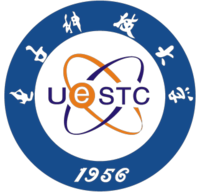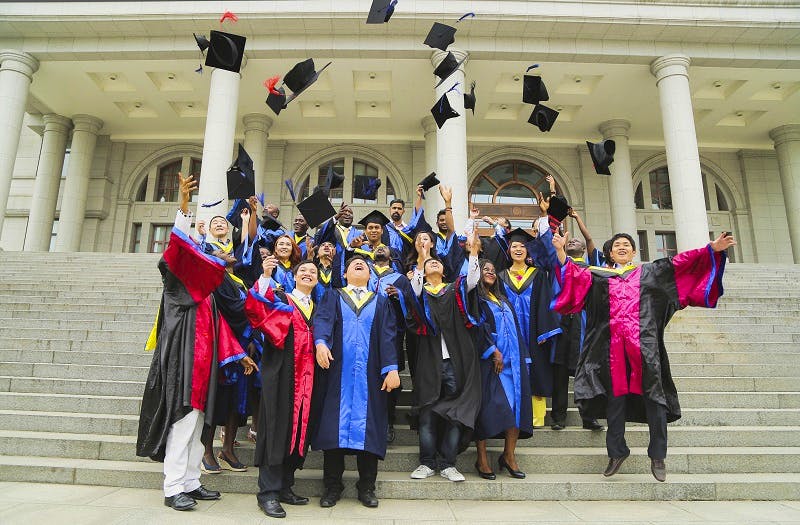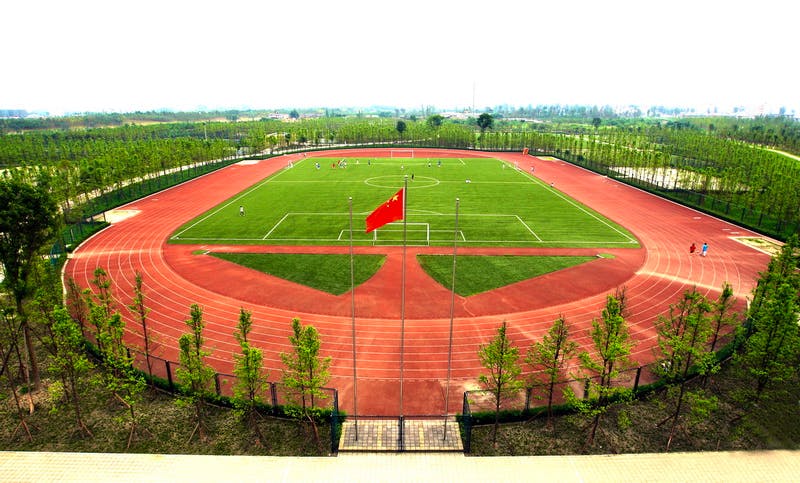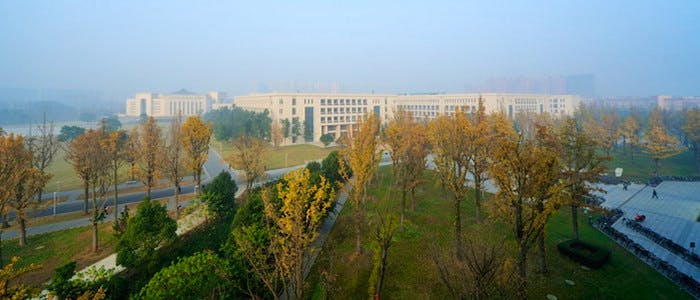History

Renowned as China's cradle for the national electronic industry, the University of Electronic Science and Technology of China (formerly Chengdu Institute of Radio Engineering) is situated at Chengdu, the city of over a thousand-year-old cultural history in "the land of abundance". In 1956, instructed by Premier Zhou Enlai, UESTC was founded on the basis of the incorporation of electronic divisions of the then three universities including Jiaotong Universities, Nanjing Institute of Technology and South China Institute of Technology. As one of the seven earliest key universities in national defense, UESTC became one of the nation's key universities in 1960. Then, in 1997 it was included as one of the first universities into "Project 211", a project in China for developing 100 first-class universities and a number of key fields of research for the 21st century. In 2001, UESTC was admitted into the nation's Project 985, receiving special support for developing world-class universities and world-famous research-oriented universities.
Academics
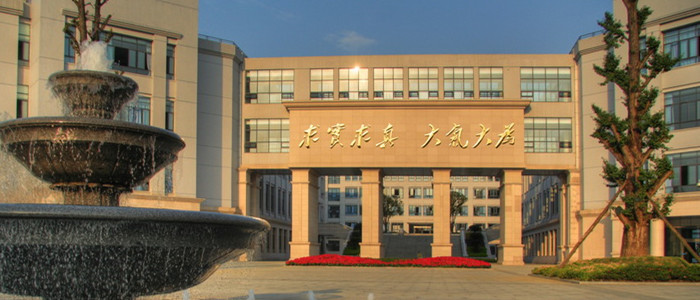
Fifty years of efforts and cultivations have witnessed the University's process from sole dependence on electronic information engineering to all-around programs in electronic disciplines, and the University now turns out to be a key multidisciplinary university with electronic science and technology as its nucleus, engineering as its major field and featured the harmonious integration of science, engineering, management, and liberal arts, well prepared at the call of the history to come up as a high-level research-oriented university.
In the new century, electronic information science and technology as the lead for modern high-tech development demonstrates a more swift and violent stance. In face of the new changes and challenges, the staff of the University will hold on its notion of "to seek facts and truth, to be noble and ambitious" in the pursuit of excellence and embark on the journey to a more glorious future.
About Chengdu

Chengdu, located in the southwest People's Republic of China, is the capital of Sichuan province and a sub-provincial city..... Chengdu is also one of the most important economic centers, transportation and communication hubs in Southwestern China. According to the 2007 Public Appraisal for Best Chinese Cities for Investment, Chengdu was chosen as one of the top ten cities to invest in out of a total of 280 urban centers in China. More than four thousand years ago, the prehistoric Bronze Age culture of Jinsha established itself in this region. The fertile Chengdu Plain, on which Chengdu is located, is called Tianfuzhi Guo in Chinese, which literally means "the country of heaven", or more often seen translated as "the Land of Abundance". It was recently named China's 4th-most livable city by China Daily.
Chengdu, a city where once you come, you would be reluctant to leave.....Chengdu, the capital city of Sichuan province is the home of the Giant Panda, the center of science and technology, culture, trade, tourism, and transportation in the southwest area of China. Situated in the southwest of China, the Sichuan province has a large population with coverage of 485 thousand square kilometers. It boasts a long history, splendid culture, and over 4500 years’ civilization. Having ancient temples, ancient towns and scenic spots, Sichuan also houses the world cultural heritages including Jiuzhai Valley, Mt. Qingcheng, Dujiangyan Irrigation Project, Mt.Emei, the Leshan Giant Buddha and Sanxingdui Ruins with its thousand-year-long mystery. The national minority ethnic community is known for its abundant wealth, honest people, mild climate, and the wealth of cultural tourism resources. If you want to learn the rich culture of China, taste the unique ethnic customs in the country, Sichuan would be the first choice.
Research @ UESTC
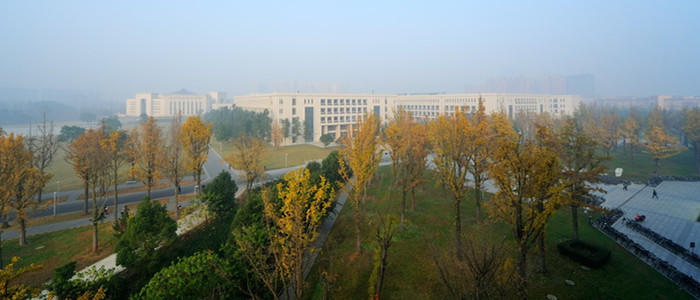
The University is adept in the field of electronic information with disciplines of strength and comprehensiveness, which have covered nearly all the second-level disciplines from materials to components and circuits to circuit systems. Centering on electronic information science and technology, a fully-fledged program system has come into being with engineering as its major field, the integration of engineering and sciences as its highlight and the coordinated development of science, engineering, administration and liberal arts as its key feature.
a) National Key Disciplines
Communication and Information System
Signal and Information Processing
Circuit and System
Electromagnetic Field and Microwave Technology
Microelectronics and Solid-State Electronics Physical Electronics
b) National Key (Fostering) Disciplines
Optical Engineering
Applied Computer Technology
c) Prize List of National Award for Science and Technology Progress & Technological Invention (2001—2010)
Theory of Waves and Fields in Complex Inhomogeneous Media and Its Engineering Applications
The Fabrication of Large-size Double-Sided YBCO Superconducting Thin Films
The magnetic-electric information function material of nanometer scale
Nanometer Ferroelectric Materials and Applications
Electromagnetic wave absorbers with high magnetic losses and their applications in key engineering
Low power consumption ferrite magnetic cores and new type economic on energy magnetic components and devices
The conducting polymers electrode materials and their applications in solid-electrolyte capacitors
Electronic Polymers Based Gas Sensors and Humidity Sensors
High-speed transmission technics and its application based on differential frequency hopping and m-ary spread-spectrum in antijamming communications
UESTC Library
UESTC has two libraries: one in Shahe Campus and another in Qingshuihe Campus, covering a total area of 66,974 square meters. The libraries are equipped with 5200 readers' seats and 108 reading and studying rooms. The library in Shahe was built in 1956, covering an area of 14,974 square meters, with Reading Department as its main service window. The library in Qingshuihe is located in the center of the campus and was built and put into use in June 2009, covering an area of more than 52,000 square meters, which is the main library in use. The main building of the library in Qingshuihe is an octagon reading building, with business office building and lecture halls adjacent to each other. The library enjoys a favorable environment, with time square right in front of it, wetland park and living water lakes not far from it and a large forest park behind it.
There are eight departments and one office in the library: Department of Academic Services, Multimedia Center, Department of Digital Resources, Editorial Department, Department of System Technology, Consulting Department, Circulation Department, and General Office. It has 82 staff. In recent years, through various kinds of vocational training, the educational background of the staff has been dramatically promoted. There are 13 vice-senior and senior professionals and15 junior professionals. 73% of the staff have college diplomas or graduate diplomas and two are working for the doctor's degree.
Recreation & Sports
UESTC provides its students with large areas of activity and sports facilities such as the 12,200 square meters Student Activities Center, Outdoor Playground (205,000 square meters), Swimming Pool (5,000 square meters), and Indoor Gym (11,400 square meters).
Show less
